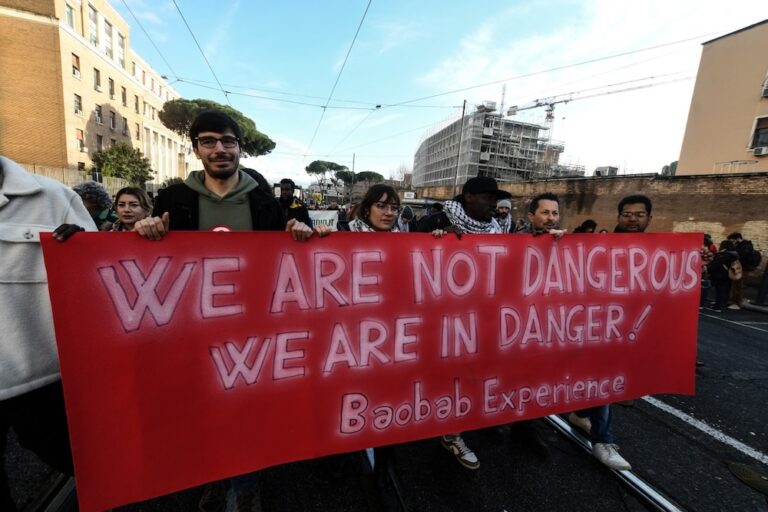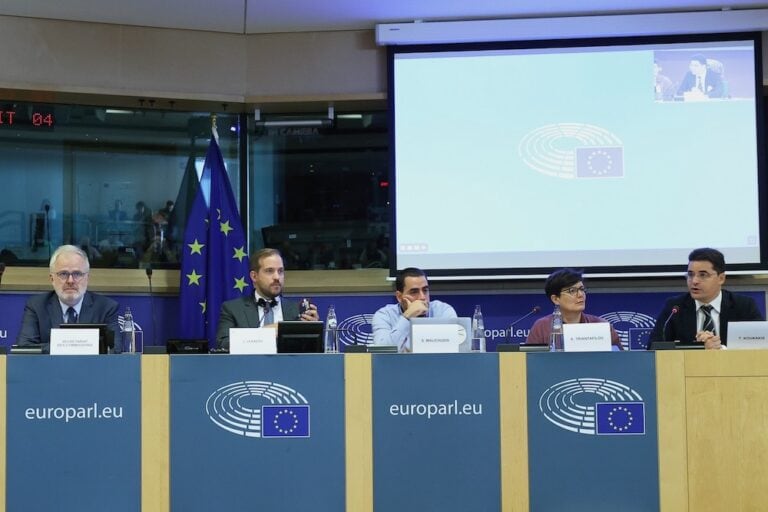Three Italian journalists were convicted of defaming a Palermo magistrate in an article published in the weekly news magazine Panorama in 2010. The article in question alleged that the magistrate had connections to organised crime.
The Writers in Prison Committee of PEN International is deeply concerned by the draconian sentences handed down by a Milan court on 22 May 2013 to three Italian journalists, Andrea Marcenaro, Riccardo Arena and Giorgio Mulè. All three were convicted of defaming a Palermo magistrate in an article published in the weekly news magazine Panorama in 2010. Marcenaro and Mulè received a 12 month and eight month prison sentence respectively; Arena, who is also the president of the Order of Journalists of Sicily, was handed a 12 month suspended sentence. The three men will have to pay €20,000 in compensation to the defendant. PEN International calls for the prison sentences to be thrown out and for Italian lawmakers to decriminalise the country’s defamation laws.
The article in question, which alleged that the magistrate had connections to organised crime, was written by Marcenaro. Arena was judged only to have contributed to the text, and so received a lesser sentence. Mulè, the editor of Panorama, was accused of failing to check the article. This case is representative of a worrying trend in Italy, where journalists work in the knowledge that they might be imprisoned for what they write:
- In 2012, Italy’s highest tribunal upheld a 2011 sentence requiring Alessandro Sallusti to spend 14 months in prison over the 2007 publication by the magazine Libero (which Sallusti edited at the time) of an anonymous comment attacking a judge for granting a 13-year-old the right to have an abortion. His sentence was later commuted by President Giorgio Napolitano of Italy.
- In July 2012, Orfeo Donatini and Tiziano Marson, the editor and former director of the newspaper L’Alto Adige, were sentenced to four-months in jail for criminally defaming a provincial councillor in South Tyrol, who they alleged had participated in a neo-Nazi summit . They were also fined €15,000.
- In May 2011, a court in Chieti sentenced three Italian journalists to prison for their reports about an alleged investigation of a mayor by the Financial Crime Investigation Unit. Walter Nerone and Claudio Lattanzio, who were employed by the Il Centro newspaper, were each sentenced to one year in prison without parole, while Luigi Vicinanza, former editor-in-chief of Il Centro, received an eight-month prison sentence, also without parole. The journalists were additionally ordered to pay €12,000 in damages and cover the costs of the trial. Their sentences are reportedly under appeal.
- In 2010, Gianluigi Guarino served 43 days in prison for criminal defamation; he had reportedly built up a number of un-appealed convictions during his time as the director of the Corriere di Caserta. He was later pardoned and released.
In Italy, the crime of defamation (Article 595 of the Penal Code) refers to any situation where a person’s reputation is offended publicly in front of many people. When this offence is carried out by the press the penalty is six months’ to three years’ imprisonment, or a fine of at least €516.
Article 10 of the European Convention on Human Rights provides for the right to freedom of expression, but subject to certain restrictions; one of these restrictions is the protection of reputation. Criminal defamation laws remain on the books in a number of European countries. However, these laws are rarely used and are generally considered an archaic leftover from the past. Libel complaints are usually pursued through civil actions.
The United Nations special rapporteur for free expression and the Organization for Security and Co-operation’s (OSCE) Representative on Freedom of the Media have both called for the decriminalisation of libel.
PEN International considers criminal defamation to be at odds with international standards on freedom of expression because it both encourages self-censorship and discourages the investigative journalism that is so necessary in a healthy democracy.
Please Send Appeals:
- Protesting the conviction of the Italian journalists Andrea Marcenaro, Riccardo Arena and Giorgio Mulè of criminal libel and calling for their sentences to be rescinded;
- Calling on Italian lawmakers to urgently decriminalise Italy’s draconian defamation laws.
President of the Italian Republic
Presidente della Repubblica Italiana
Giorgio Napolitano
Palazzo del Quirinale,
00187 Roma – Piazza del Quirinale
Fax 06.46993125
Please send to: Emails: https://servizi.quirinale.it/webmail/ Public Prosecutor’s Office in Milan
Procuratore della Repubblica
Dott. Edmondo Bruti Liberati
Via Freguglia n° 1 – 20122 Milano
C.F. 80157390156
Centralino: 02-54331 o 02-5436
Fax Ufficio Protocollo: 02-5457068
PEC: prot.procura.milano@giustiziacert.it
President of the Court of Appeal of Milan
Presidente di Corte di Appello
Giovanni Canzio
Via Freguglia 1
20122 – Milano (MI)
Fax 02 – 54108081 (segreteria distretto)
E-mail: ca.milano@giustizia.it
*****Please check with the PEN office is sending appeals after 30 July 2013**** For further details contact Cathal Sheerin at the Writers in Prison Committee London Office: PEN International, Brownlow House, 50/51 High Holborn, London WC1V 6ER UK Tel: + 44 (0) 20 7405 0338 Fax: + 44 (0) 20 7405 0339 e-mail: Cathal.sheerin@pen-international.org


